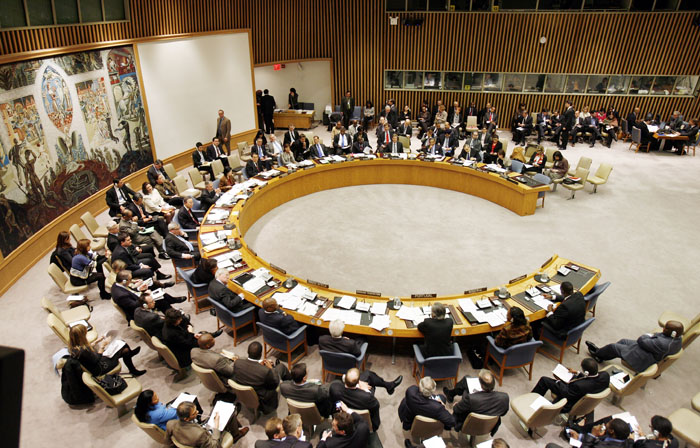
On Wednesday, the U.N. Security Council received its first briefing regarding Sudan and South Sudan’s compliance with Security Council Resolution 2046. In the closed meeting, the U.N. Special Envoy to Sudan and South Sudan, Haile Menkerios, briefed the council on the events in Sudan and South Sudan since the passage of the resolution. As mandated, Menkerios’ presentation was the first of what will be biweekly reports regarding the situation in the two Sudans and the compliance of Sudan, South Sudan, and the Sudan People’s Liberation Movement-North, or SPLM-N, or lack thereof, with the terms of Resolution 2046.
U.S. Ambassador to the U.N. Susan Rice characterized Special Envoy Menkerios’ report as a “mixed assessment…on the compliance with the various provisions of Resolution 2046.” The Enough Project’s Compliance Tracker has been monitoring the implementation of the resolution’s deadlines and provisions.
To that end, the government of Sudan has failed to meet several deadlines enumerated in the resolution, including:
- Continued aerial bombardments of Unity state, South Sudan after the 48-hour deadline for cessation of hostilities.
- Failure to redeploy SAF troops out of the Abyei area within the two-week deadline, despite South Sudan’s withdrawal of its police force from the area.
- Indications of reluctance to unconditionally return to North-South negotiations within the two-week deadline, despite the South’s willingness to do the same.
Moreover, the government of Sudan has violated several provisions of the resolutions, including:
- Continuation of the use of inflammatory statements and rhetoric, such as Bashir’s statement that, "We have fertilized the soil with [South Sudan’s] dead."
- Rejection of negotiations with the SPLM-N.
- Refusal to agree to the Tripartite Agreement, which would allow for humanitarian access to South Kordofan and Blue Nile.
For its part, South Sudan has expressed its willingness to comply with the resolution, in particular, through its recent redeployment of South Sudan police out of the Abyei area and its commitment to return to negotiations.
Khartoum’s delayed implementation of certain aspects of the resolution, and patent refusal to implement others, should come as no surprise to the U.S. and other U.N. Security Council members. Such behavior conforms to the Khartoum regime’s consistent pattern of either delaying implementation of certain agreements to the point of abrogation or vociferously refusing to implement some or all aspects of other agreements or international obligations. Members of the Security Council must keep this demonstrated patterns of behavior in mind in the coming weeks and months as they monitor all parties compliance with the resolution and weigh when, if at all, the imposition of sanctions may be warranted.
Despite the government of Sudan’s measured defiance to the U.N.’s actions, Ambassador Rice credited Resolution 2046 with helping establish a situation “somewhat better that it was two weeks ago when the resolution was passed.”
However, the current calm along the North-South border is not sustainable without the initiation of mechanisms designed to address holistically center-periphery issues within Sudan as well as outstanding North-South issues. To this end, the international community must resist Khartoum’s demands to separate resolution of its conflict with the SPLM-N and other opposition groups in South Kordofan, Blue Nile, Darfur, and other marginalized areas within Sudan with the negotiation process between Sudan and South Sudan.
As Ambassador Rice stated earlier this week:
The reality is that, as we all agree in there, it is impossible to separate what is happening from Southern Kordofan and Blue Nile from the larger conflict between North and South. And the North would be wise to return to the table with the SPLM-North, to allow humanitarian access, which was discussed in there as a matter of enormous urgency given the onslaught of the rainy season. And the North needs to know—and the SPLM-North needs to know—that they have obligations in this regard under the resolution.
Other members of the U.N. Security Council, as well as the greater international community, should heed Ambassador Rice’s statements in this regard. The government of Sudan should not be permitted to undermine Resolution 2046 and continue its policy of creating divisions between the various conflicts in which it is engaged. Whether its South Kordofan, Blue Nile, Darfur, Abyei, South Sudan, or Beja, the international community must no longer allow the government of Sudan to utilize a divide and conquer policy in an effort to play regions within and around Sudan off of one another in a bid to stay politically and diplomatically viable.
Photo: U.N. Security Council (AP)

